The beginnings and the team it takes
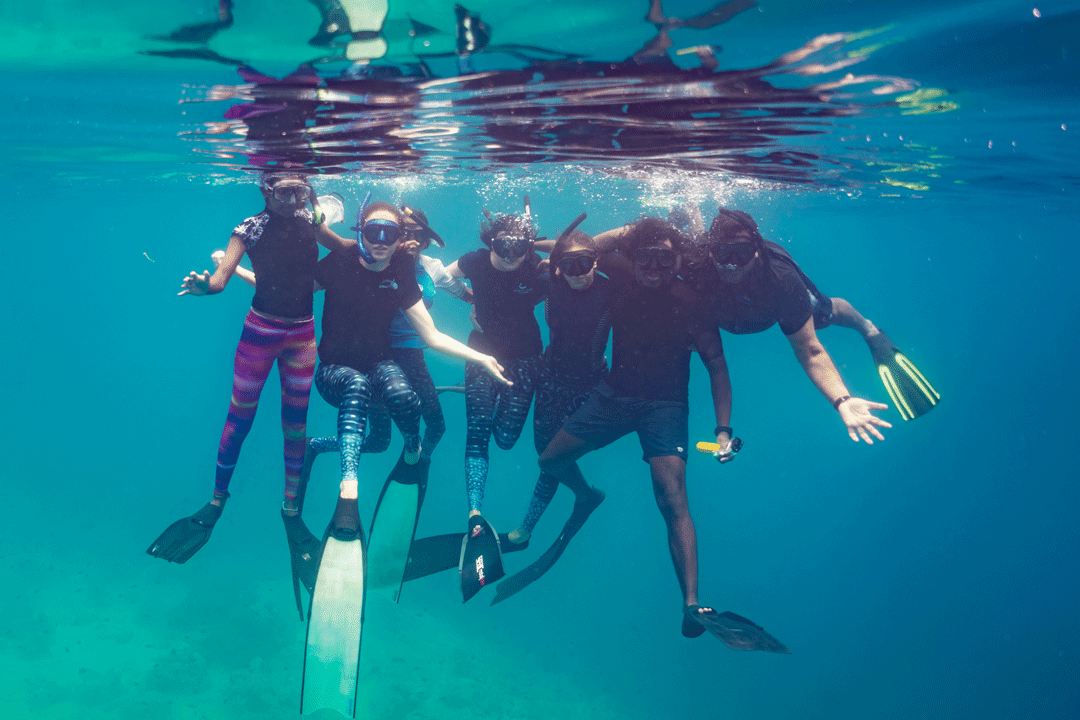
Underwater team picture, from left to right: Yumin Naseem, Alina Wieczorek, Irthisham Zareer, Giulia Donati, Katie Hindle, Ibrahim Shameel, Aku. Photo © Mattia Arosio
Taking on an ambitious project such as ours, which not only involves carrying out scientific work on a very elusive species, but also engaging with stakeholders and decision-makers is not an easy task -the key of success is to do it with the right people. I am lucky to be leading this project together with Giulia, who is a great friend to me and an exceptionally ambitious researcher. Behind us is a team of hard-working friends and colleagues who have spent sleepless nights with us, shed blood and tears alongside us and just made this whole journey an amazing experience for everyone. Even more impressive, is that all of us work for this project voluntarily alongside our studies, jobs and other commitments. Today, I want to talk about how we started this journey and about the people behind this project who have given so much of their time to make a difference for our oceans.
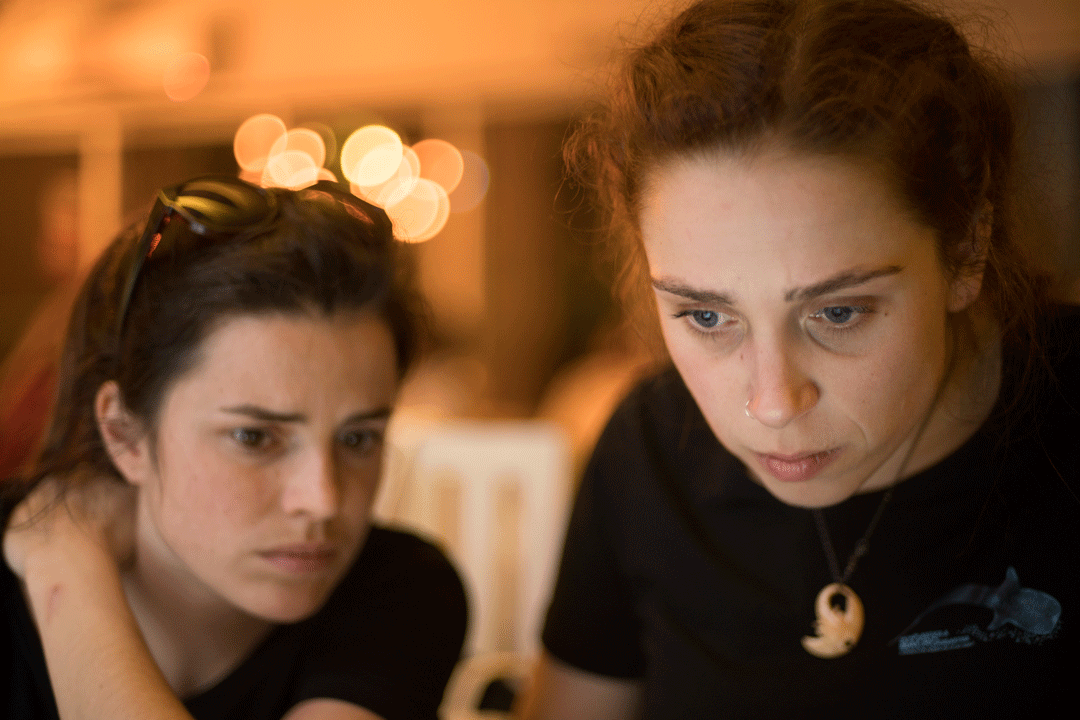
Giulia and Alina during discussing project details. Photo © Dawid Piotr Szlaga | Wild Island Pictures
But let’s start at the beginning: In the summer of 2018 Giulia and I met during a workshop on science communication with the public and decision-makers. After the introduction session, Giulia and I got talking to each other as she was interested in the microplastics research I do. She told me about the whale shark faecal samples she had started collecting while working for the Maldives Whale Shark Research Programme (MWRSP) and that she was keen to see whether they had any microplastics inside them. We decided to self-finance the analysis of one sample which I would check for the presence of microplastics. When I inspected the filter paper which separates the microplastics from the dissolved organic material, I was very surprised to find 10 microplastics on it.
We wanted to investigate these findings further and also look at the way whale sharks may get exposed to microplastics. More importantly, we wanted to use the unique opportunity of working on such an umbrella species to engage with local stakeholders and reach out about this environmental issue on a global scale.
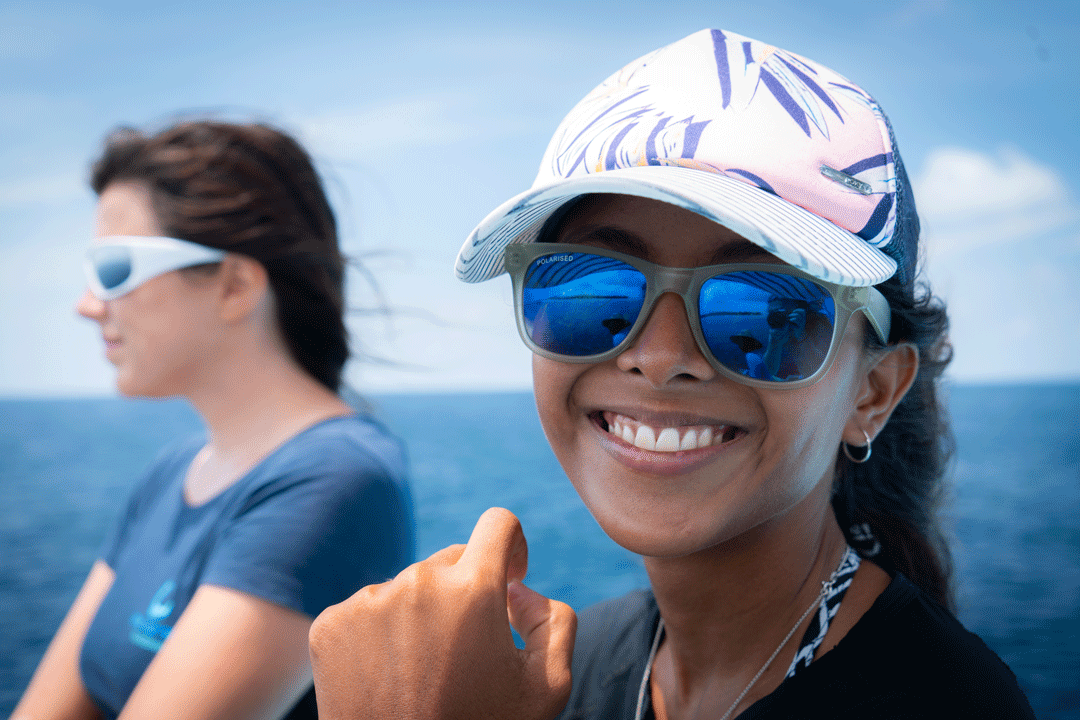
Irthisham Zareer aboard surveying whale sharks. Photo © Dawid Piotr Szlaga | Wild Island Pictures
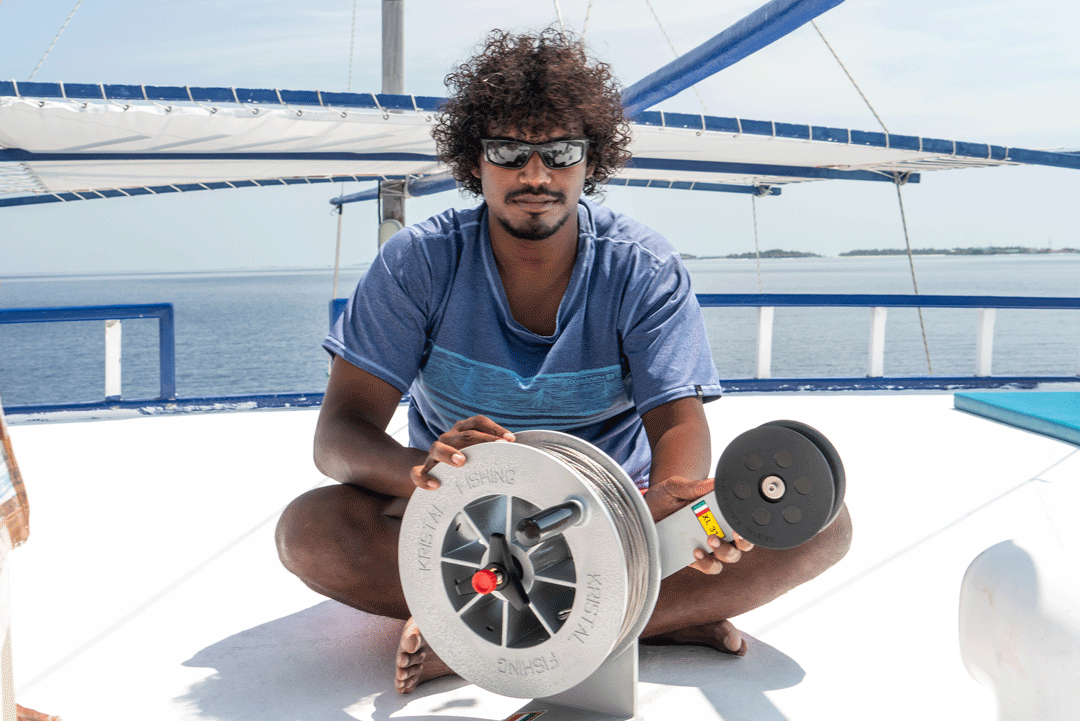
Ibrahim Shameel during field work. Photo © Dawid Piotr Szlaga | Wild Island Pictures
When planning the project we were carefully considering who would be suitable for this work and has the passion it takes. Giulia immediately knew that Iru and Shameel, staff and her former co-workers from the MWSRP, who also helped collect the faecal samples over the past four years, needed to be part of it. Iru is from the capital city Male’ and now lives on the quiet island of Dhigurah (South Ari atoll), where she operates as the outreach coordinator of the MWSRP. Shameel, part of MWSRP since 2013, is also from and based in the Male’. He coordinates the MWSRP volunteers while also working for another NGO in the Maldives (Olive Ridley Project). Both are like fish in the water and it always fascinates me how they can vanish into the deep blue holding onto that one breath of air.

Katie Hindle retrieving Niskin bottle after deployment. Photo © Dawid Piotr Szlaga | Wild Island Pictures
Next, we got Katie on board. Katie was part of the MWSRP in its early days and did her dissertation on the comparison of anthropogenic injuries of whale sharks in the Maldives and those occurring around the remote south Atlantic island of Saint Helena. She is an amazing whale shark spotter, a great free diver and gives the work she does her all. On top of all that, Katie is always in a good mood and will lift your spirits when something doesn’t go as planned. Another smiley face we could always count on was our intern Yumin. We recruited Yumin, a Maldivian student, once the project kicked off and she has been proven to be everything we hoped for and more.
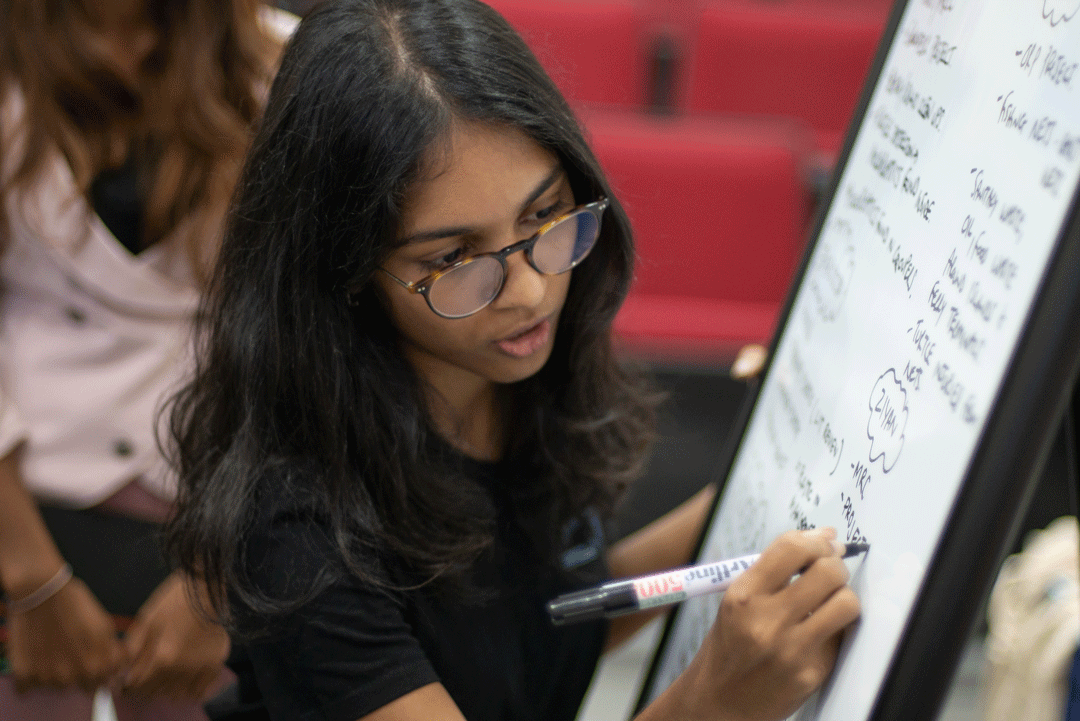
Intern Yumin Naseem during stakeholder workshop. Photo © Dawid Piotr Szlaga | Wild Island Pictures
In order to reach a wider audience, we wanted to outreach about our findings on a global scale and inform society about the environmental problems small island states face. For this reason, we decided to video-document the project. I had previously worked with Dawid from Wild Island Pictures and when we asked him he was immediately on board. Following us into all the elements he managed to capture the work we do and more importantly than that also the opinions and testimonials of the locals which will allow us to give them a voice on a global platform.
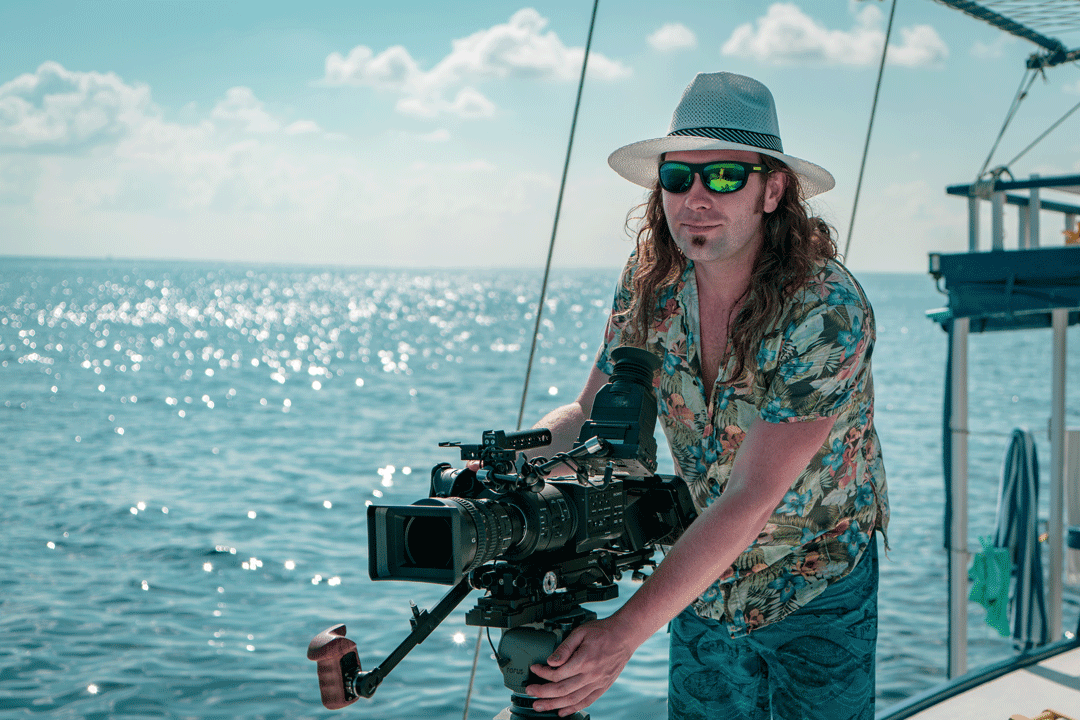
Cinematographer Dawid Szlaga. Photo © Alina Wieczorek
We believe that one of the great strengths of this project lies in the joint effort of these very diverse and young minds. Most importantly, the local knowledge and experience of our Maldivian team members has been fundamental when working with the community and local decision-makers. At heart to Giulia and myself was to empower local people to carry out research and take action to protect their precious marine environment.
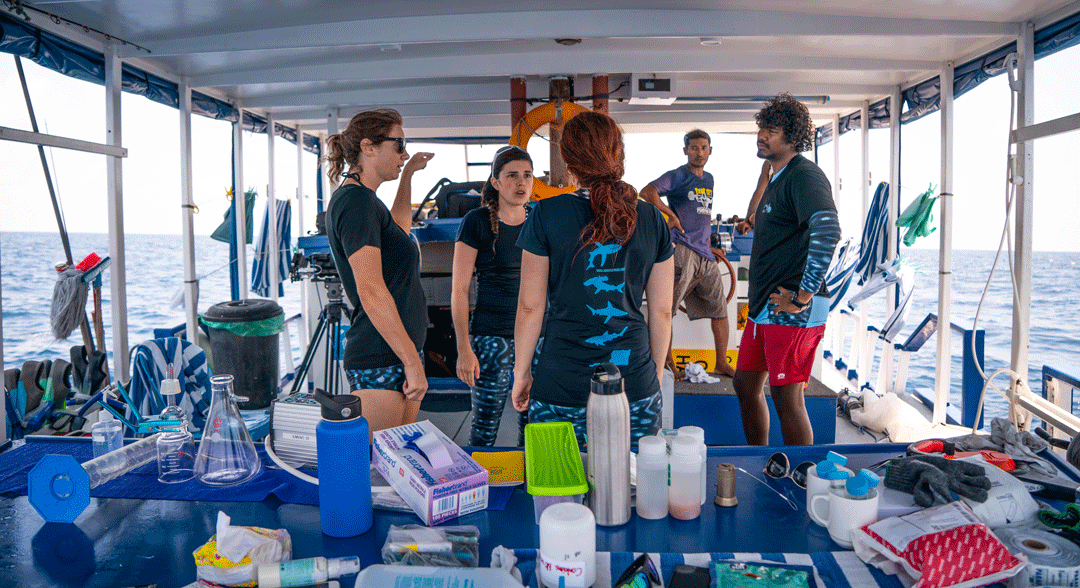
eam discussing instrument deployment during field work, from left to right: Katie Hindle, Giulia Donati, Alina Wieczorek, Sea Coral crew member, Ibrahim Shameel. Photo © Dawid Piotr Szlaga | Wild Island Pictures
The Maldives, amongst many other countries, are lacking scientific facilities that are easily available to researchers in many European institutes. This leads to a significant proportion of foreign researchers carrying out work in scientifically important countries such as the Maldives. For those researchers it is crucial and only ethical to share their knowledge, resources and findings with local scientists as well as decision-makers. This has always been a central part of our project.
To all of you, we are so grateful for your dedication and hard work. Many thanks also to Chris, Binbin, Merilyn, Clara, Basith, James and Rich.
